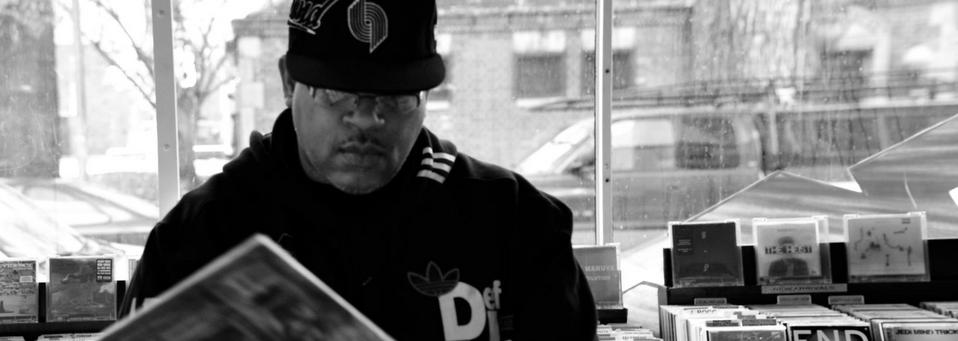Since 2008, DJ Klyph has been doing his part (and then some) to build Portland’s hip-hop community through his radio program, Welcome to the Neighborhood. However, following the upcoming Mar. 11 episode, Klyph will be taking a hiatus. WOHM sat down with Klyph to discuss why he’s taking a break, what we can expect from the Neighborhood in the future, and the history and importance of the show.
“I believe in keeping balance,” says Klyph. “It’s an honor and a blessing to do the radio show but I also have a 9-5 and a family so I want to be sure that the show continues to be the best it can be, which is a platform for local artists, so I need to be my best in doing that.”
He doesn’t have any definitive dates for when the show will be coming back to KZME but hints that it could be sometime this summer.
In the meantime, Klyph will continue blogging for KZME, including doing more album and concert reviews. He’ll also continue to encourage artists to submit music to the station for the r egular rotation. The goal is to give hip-hop a 24-hour presence.
egular rotation. The goal is to give hip-hop a 24-hour presence.
As for now, he’s been getting an outpouring of support from artists and fans of the show.
“From the time I announced I was gonna take a little break, the feedback and people that reached out to me made me realize how impactful the radio show has been to the local community and it makes me know that it’s really serving a purpose and it’s important to keep it moving,” says Klyph.
Originally, the show was a platform for music Klyph wasn’t hearing anywhere else. He knows the plight of artists struggling to get heard all too well.
Hailing from New Jersey, Klyph spent his early adult years in Louisiana, trying to get on in the hip-hop scene when it was in a similar position as Portland is in today.
“Everybody needs an opportunity to share their art,” says Klyph. “I’ve had exposure to the birthplace of hip-hop and then saw that uprising of that Southern hip-hop sound and then up here to the Northwest. It’s given me a really interesting perspective. To come here and see all these artist coming up, struggling for recognition, struggling for respect, it’s like okay, I know what that’s about.”
In addition to playing music, the show has evolved to include artist interviews (all of which, you can find in the KZME archives) and freestyles, which people can watch on Klyph’s YouTube page.
“It’s sort of grown from playing their music to I have a passion to get the community to know who they are as people,” he says. “That’s why I chose the name Welcome to the Neighborhood because I wanted it to be this place where people felt like they were a part of something and have that neighborhood grow to what it is today.”
One of the residual effects of this approach is that artists have built relationships after meeting through the show. It’s something that’s become more commonplace in the scene as a whole in the last few years, notes Klyph. The regular interaction between artists is both raising the level of competition and compelling stakeholders to spread the word.
He says people still come to him at his day job, surprised to find out there is a burgeoning hip-hop scene in Portland.
“We gotta change that,” says Klyph. “The only way it’s going to happen is if we change it. It takes a community. We don’t need to wait for somebody else to do it. We have the power right now to do it for ourselves.
“Let people know about Welcome to the Neighborhood. Let them know about the Northwest Breakout Show. Let them know about We Out Here Magazine. And not just the homies. Let your grandma know. Let your pastor know. Let your coworker know.”
To take it a step further, Klyph emphasizes that it’s on us to protect and preserve this culture. Yes, the conversations about lack of venues, police, and the OLCC are very real, but if we don’t do anything, we risk losing hip-hop, he says.
“We have to make a decision. Are we just going to be angry and cry about it and say, ‘Look at what they’re doing to us,’ or are we, the people who control the art, going to make the choice that there’s another way to do this,” he says.
“Louder than words. That’s my motto. Don’t just say it. Do it.”

